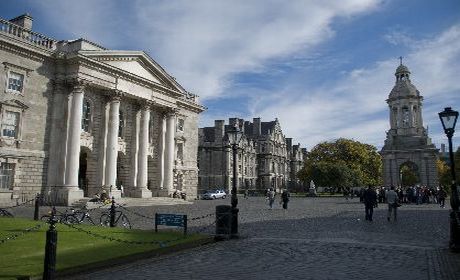BAI EngineeringAdd to shortlist
Programme profile
Engineering is about being creative. Engineers make things possible by using mathematical and scientific principles together with analytical and design skills. They tackle existing problems by developing new solutions through innovative technologies. They also expand the frontiers of society by developing advanced materials, sustainable energy systems, construction technologies, transport systems and telecommunications infrastructure.
The B.A.I. (Engineering) degree programme is based on two years of general engineering, providing students with a firm grounding in the principles common to all disciplines, followed by two years of specialisation. Graduates are professionally accredited engineers with both a broad-based understanding of the whole discipline and a detailed knowledge of their chosen specialist area. The aim is that graduates will be able to continuously train themselves, to adapt and move into related or newly emerging areas as their careers develop after graduation.
Programme content
All students follow a common programme for the first two years.
The First Year comprises introductory courses in engineering science, mathematics, computer science, physics, chemistry, mechanics, electricity and magnetism, graphics and computer-aided engineering, and a group design and build project.
In the Second Year, students take further engineering science modules and complete two more group design and build projects.
For Years Three & Four, you choose one of the five specialist areas:
Civil, structural and environmental engineering;
Computer engineering;
Electronic engineering;
Electronic and computer engineering;
Mechanical and manufacturing engineering.
Modules aim to broaden and deepen your knowledge and understanding of the specialism you have chosen to follow to degree level. You undertake real-life, practical projects. If you choose civil, structural and environmental engineering you could end up testing the pre-cast concrete used to build the Paddington to Heathrow railway; if you choose computer engineering, you might find yourself building a microprocessor system. A substantial design project will be part of your final-year assessment in each discipline
Progression
Students will require a Masters degree to be directly eligible for Chartered status. Therefore the School offers several options for a 5th year leading to a Masters degree (M.A.I.).
Entry Requirements
Students must present six subjects of which two must be at grade C or above at Advanced GCE (A-Level. The other subjects must be at least at grade C or above on GCSE or Advanced Subsidiary GCE (AS) papers. The six subjects must include: English, Mathematics and a language other than English.
A-Level Maths required, at Grade C or above
495
No
No
No
05 November
01 May

 Join us on Facebook
Join us on Facebook